I want to talk about a new key to create better communication. Something I learned in a class not too long ago. It is something that can work in any relationship and I think it’s pretty powerful.
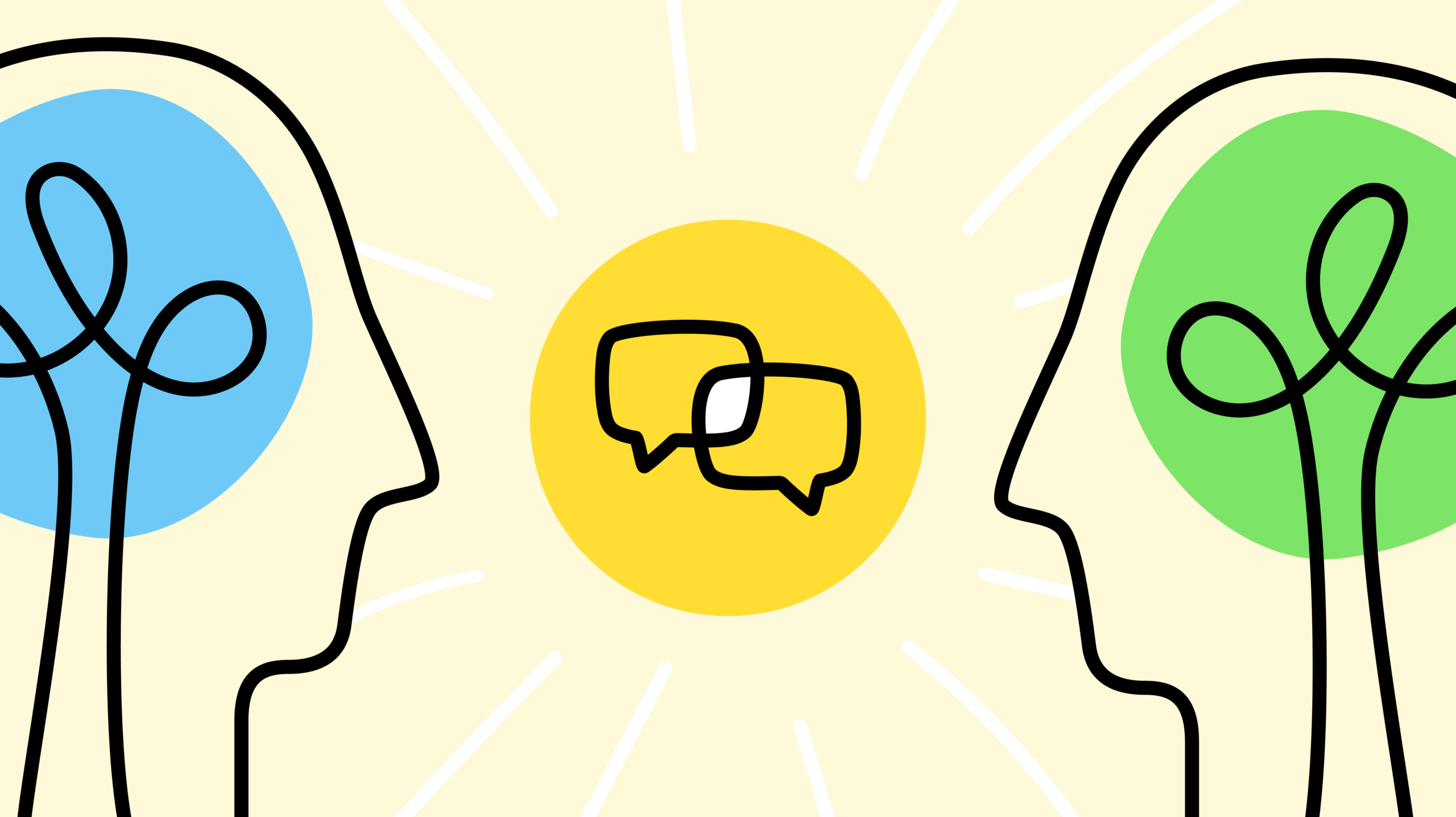
Let’s start with a “what would you do” game.
Let’s say you are talking to your husband about something that is super important to you. As you are spilling out your heart and some deepest, emotion-filled thoughts, you look over and see that husband of yours sort of glazed over. Not really seeming to listen.
What would you do?
Most likely this would bring up lots of questions:
- Is he not listening?
- Does he not care?
- Am I really safe to share these kinds of things with him?
What do those questions lead to?
- Possible hurt feelings
- Retracting and loss of trust, not wanting to share these deep things
- Anger and frustration
Am I right on that? Let me know if I’m not, but I feel like as human beings we sometimes jump to conclusions quickly, especially when we’re feeling vulnerable, which true communication tends to do. We want to feel heard and seen.
Mostly, we want to feel safe.
Things similar to this scenario happen all the time in life. There are so many times in life when we as human beings don’t feel heard or understood.
And what we do with those feelings really matters.
Our Communications Class
We had a “Better Communication Skills” night at church not too long ago.
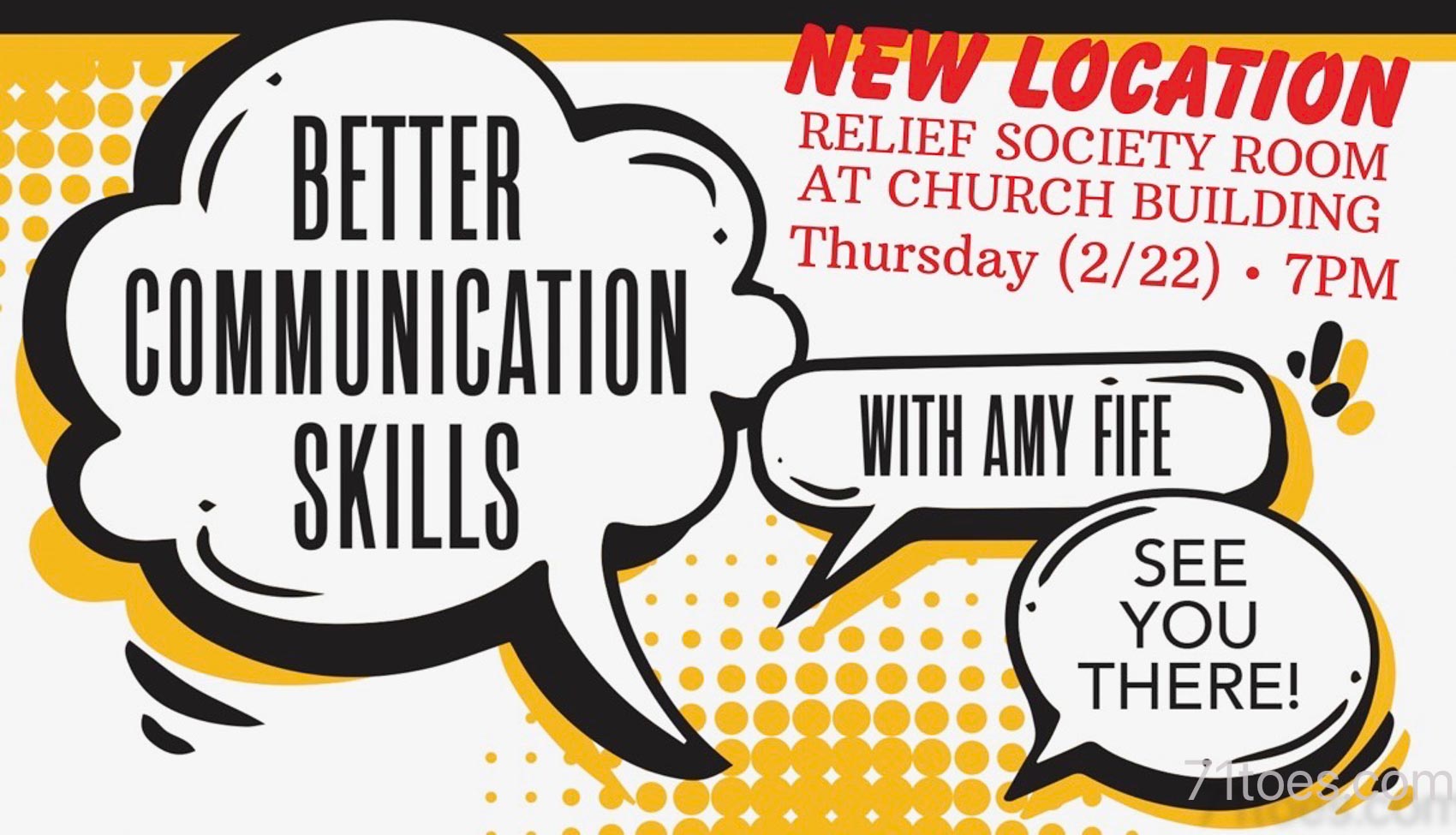
Our teacher (an awesome professional therapist) shared that story of her husband being glazed over when she was opening up some vulnerabilities.
I loved her response.
She admittedly shared that she normally would have been hurt and could have easily shut down. That’s probably a first instinct for most people.
Ask Important Questions
But instead, since she had just been in some therapy sessions where she had been reminding people to “get curious” in communication, she stopped. She paused, collected herself and had the idea to just ask.
Why was he not paying attention?
What was going on in his mind?
Because she was calm enough to get curious and ask, he was able to express that he was like a deer in the headlights. He just wasn’t sure how to react. This was heavy stuff after all.
Those questions diffused the hurt and anger speedy-quick. And made room for deeper communication and understanding.
My new key to better communication
You may think that the questions or the “get curious” part were my epiphany new “key” to better communication.
But actually, it was the PAUSE.
Taking even a brief (or long) minute to stop.
To think.
To get your feelings straight.
I’m sure this takes lots of practice, but man alive, in this fast-paced world, we can use a few pauses here and there.
Remember that “pause” sometimes needs to be hours rather than moments
My biggest epiphany was that this “pause” can take a while.
There are some discussions or perhaps actual fights that take more than a minute to sort your heart out.
Most of us won’t have had the luxury of being with clients earlier in the day and being reminded how important the questions are. The curiosity. I don’t think it comes naturally right off the bat.
There are times when I’m so frustrated it’s going to take me some time to diffuse my ramped up heart. Just ask Dave. Ha!
So I LOVE that our teacher said to set a time limit.
- “Let’s revisit this tomorrow night when we get home from work.”
- “I need some time to think about this, can you give me an hour?”
The important thing is to actually set a time.
Don’t just say “let’s talk about this later.” That makes it too easy to let the frustrations, hurt, worries get buried and pushed away.
Sure, there’s a possibility those feelings will be so diffused by the time you have set to discuss they may hardly be an issue any more. All the emotions of that moment may have seeped out and you can see things more clearly. But actually coming back to address is a big deal.
Other things I learned
Oh we learned lots of other things in that class.
We talked about the prefrontal cortex is the rational, reasoning, thinking part of the brain to make sense of things, but that the Limbic System and the amygdala are the “fight or flight” parts of the brain. It lets us know if there’s danger, kind of like a smoke detector.
I love that our teacher compared the prefrontal cortex to the “Rider” and the amygdala to the “Horse.” We need the prefrontal cortex to help us make sense of the stimuli that come into the amygdala, but that takes time. (We know that the prefrontal cortex takes a while to develop.)
I love that she reiterated the importance of V+V=C (Validation + Vulnerability = Connection), and talked through “Attune Behaviors.”
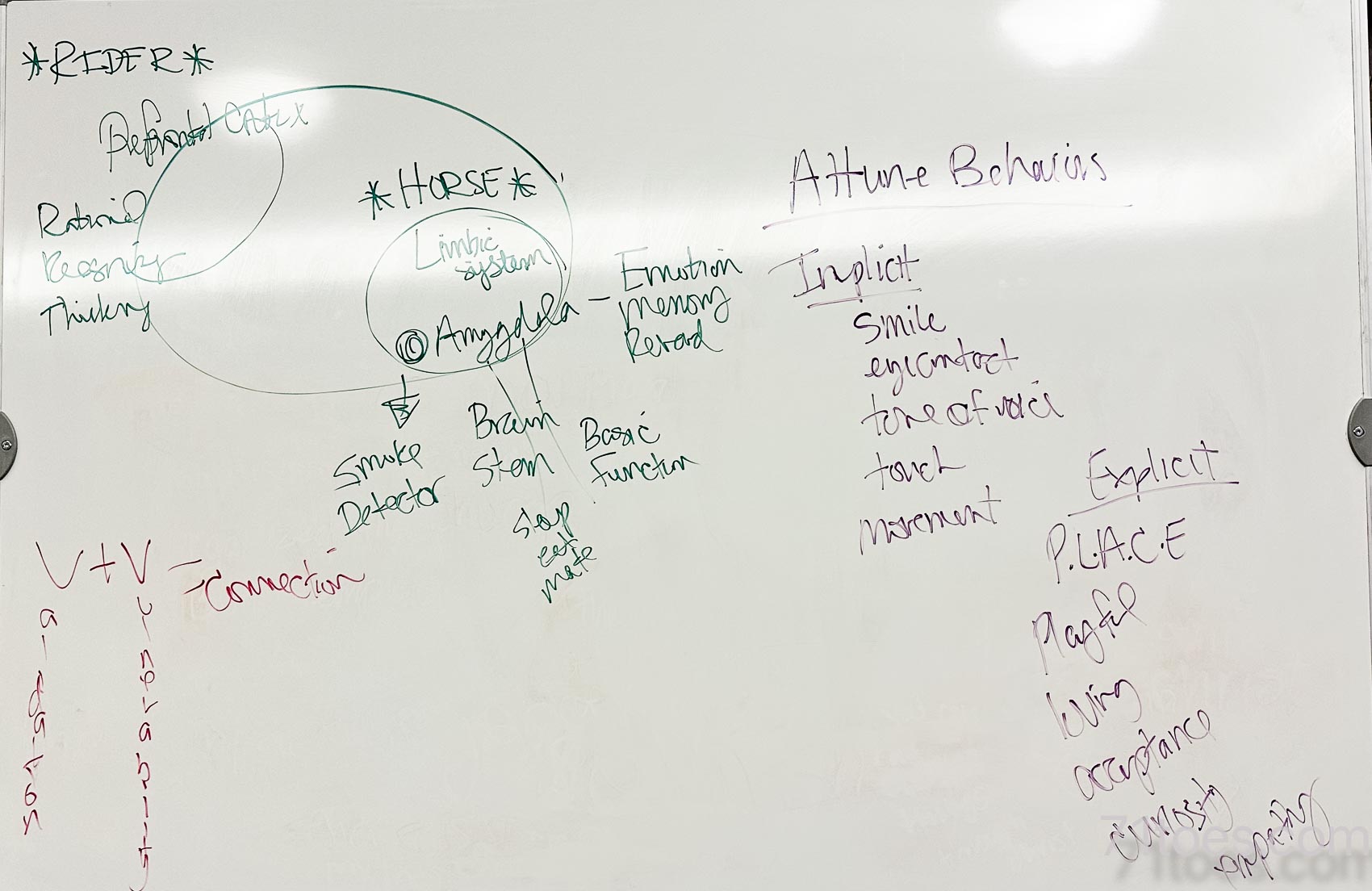
I learned so much.
But my biggest epiphany was that PAUSE.
And what it can do to strengthen the web of relationships I want to cherish and care for in my life.
Thank you, Amy, for teaching us so much goodness!
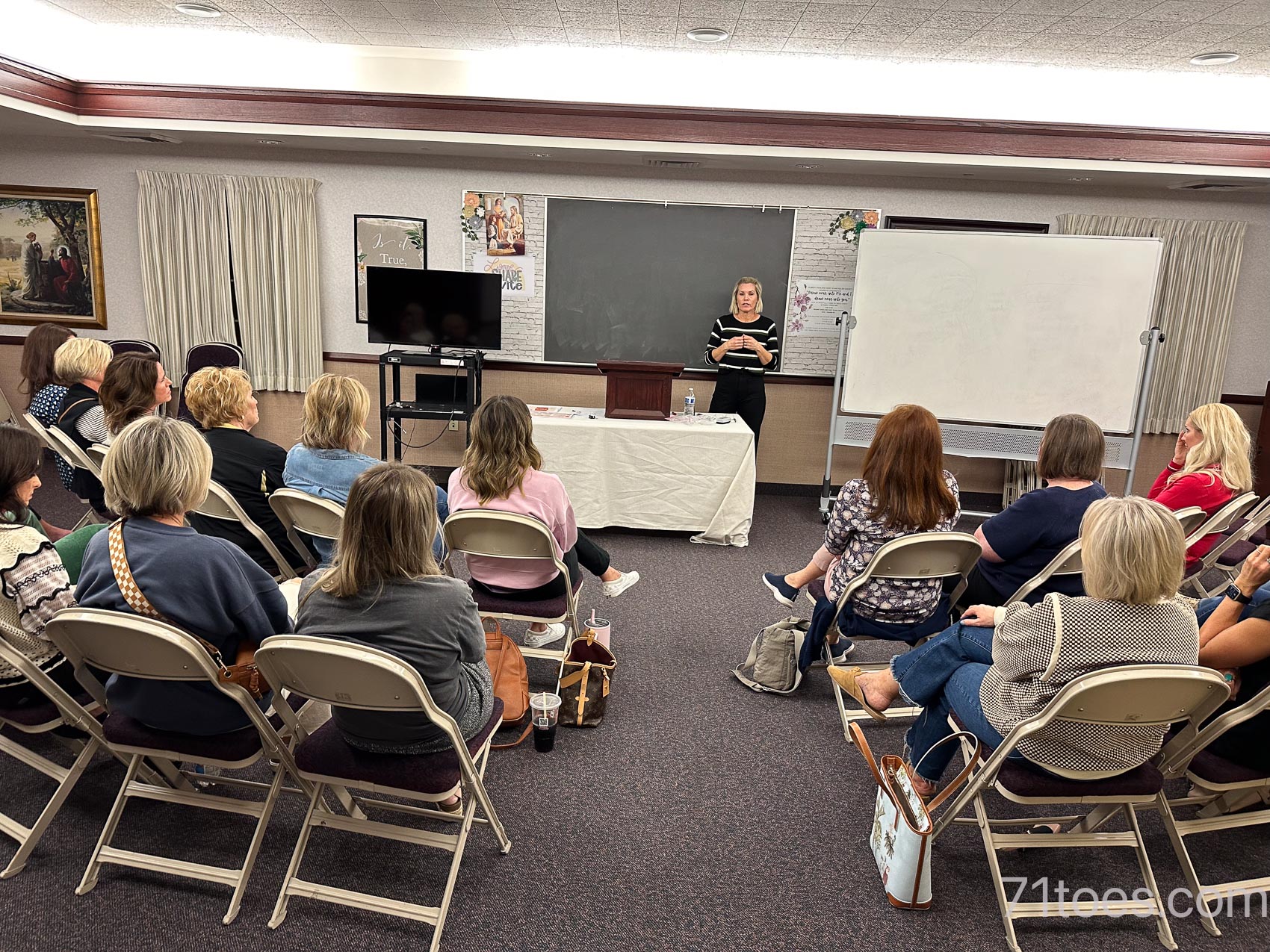

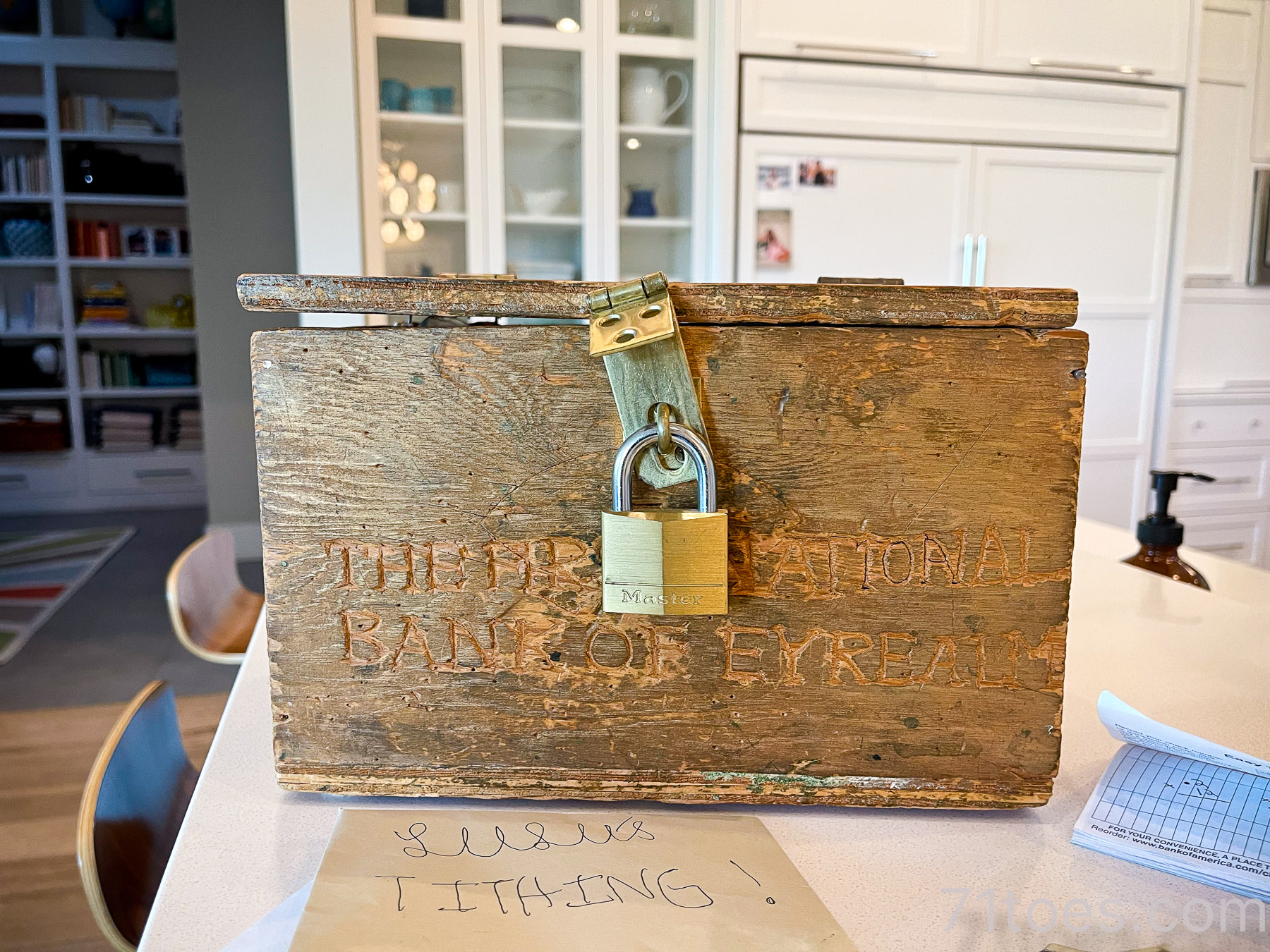

This is really helpful! I’m about to have an important conversation with my husband this evening. Perfect timing to read this! Thank you 🙂